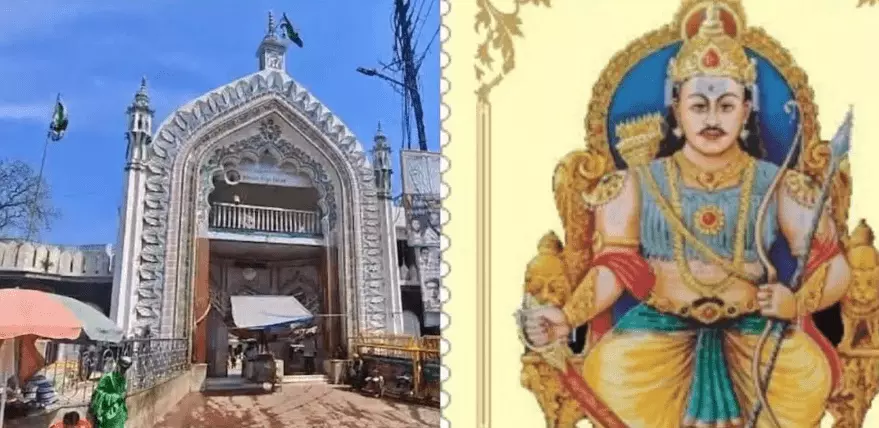
Why ‘Hindus’ in UP want blanket ban on fairs venerating Syed Salar Masood Ghazi
Amid demands to stop fair commemorating Syed Salar Masood Ghazi, ‘Vijayotsav Diwas’ is being held to celebrate Maharaja Suheldev, who killed Ghazi in battlefield

The Neja Mela, a fair which was being traditionally held in Uttar Pradesh Sambhal district for centuries together to commemorate Syed Salar Masood Ghazi, has become the new topic of communal divide in the state.
Protests by Hindu outfits to ban the fair altogether for celebrating a “Muslim plunderer” has prompted the Uttar Pradesh government to stall it this year, igniting debates about changing historical narratives and cultural practices.
Who was Masood Ghazi?
Traditionally, the Neja Mela in Sambhal involves the decoration and veneration of a tall bamboo or wooden staff, symbolising a connection to Ghazi’s tomb. This year, authorities denied permission for the event, citing Ghazi’s historical role as a plunderer associated with Mahmud Ghazni, who attacked India's religious sites, including the Somnath Temple.
Also read: Mosques covered with tarpaulin for Holi celebrations in Shahjahanpur
In 1034 AD, Maharaja Suheldev of Shravasti, leading a coalition of 21 regional kings, defeated and killed Ghazi in the Battle of Bahraich. Ghazi, reputedly the nephew of Mahmud Ghazni, was buried in Bahraich, where his tomb became a site of annual commemorations.
Row over Jeth Mela
Every year, the ‘Jeth Mela’ or ‘Gazi Miyan's Fair’ is held at Ghazi’s shrine in Bahraich during May-June, attracting both Hindu and Muslim devotees. However, Hindu organisations are now calling for a blanket ban on this fair, arguing that it venerates an invader.
Also read: Loudspeaker ban: Sambhal returns to primitive practice of using drums for wake-up call
Concurrently, Maharaja Suheldev's victory over Masood is celebrated as ‘Vijayotsav Diwas’, highlighting the historical conflict between the two figures.
Glorifying invaders treason: Yogi
On Thursday, Uttar Pradesh Chief Minister Yogi Adityanath, without directly naming Ghazi, said that while the world praises India's eternal culture, glorifying invaders is unacceptable and tantamount to treason. He asserted that India will no longer tolerate the veneration of its historical aggressors.
Also read: Glorifying invaders is treason; 'New India' won’t accept it: UP CM Adityanath
The disputes over Neja Mela and Jetha Mela underscore the complexities in interpreting historical events and figures. While some view these fairs as integral to Sufi traditions, others see them as commemorations of foreign invasions. The differing perspectives on Ghazi and Maharaja Suheldev reflect broader discussions about cultural heritage and historical memory in contemporary India.

